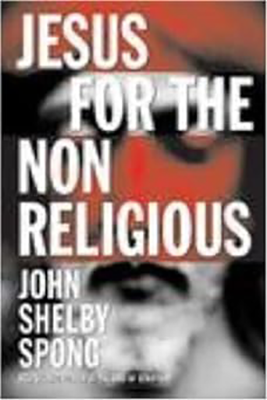Jesus For The Non Religious
“Jesus for the Non-Religious” is a book by John Shelby Spong, a retired American bishop of the Episcopal Church and a prominent liberal theologian. Published in 2007, the book presents Spong’s reinterpretation of the figure of Jesus Christ and his teachings for a contemporary, secular audience. Here’s a summary:
Main Themes:
Quest for the Historical Jesus: Spong engages with the quest for the historical Jesus, seeking to uncover the human, historical figure behind the layers of myth, legend, and theological interpretation. He examines the historical context of Jesus’s life and ministry, exploring the socio-political, religious, and cultural dynamics of 1st-century Palestine.
Deconstruction of Traditional Beliefs: Spong challenges traditional Christian beliefs and doctrines about Jesus, including his divinity, virgin birth, miracles, and resurrection. He argues that these supernatural elements are later accretions to the Jesus story and should be understood metaphorically rather than literally.
Ethical and Spiritual Teachings: Despite his skepticism toward traditional dogmas, Spong emphasizes the ethical and spiritual teachings of Jesus as recorded in the Gospels. He highlights themes such as love, compassion, social justice, and the kingdom of God, suggesting that these teachings remain relevant and transformative for contemporary audiences.
Universalism and Inclusivity: Spong advocates for a more inclusive and universalistic interpretation of Jesus’s message, one that transcends religious boundaries and embraces the diversity of human experience. He rejects exclusivist claims to truth and salvation, promoting an ethic of love and acceptance for all people, regardless of their religious or cultural background.
Key Concepts:
– Historical-Critical Method: Spong employs the historical-critical method of biblical scholarship to analyze the Gospels and separate historical fact from theological interpretation. He draws on insights from modern biblical scholarship, archaeology, and comparative religion to reconstruct the context of Jesus’s life and ministry.
– Metaphorical Interpretation: Spong interprets the miraculous elements of the Gospel narratives, such as the virgin birth and resurrection, as metaphorical expressions of deeper spiritual truths rather than literal events. He suggests that these myths convey symbolic meanings that speak to the human experience of transcendence, transformation, and hope.
– Spiritual Evolution: Spong views Christianity as an evolving tradition that continues to adapt and change in response to new cultural, intellectual, and spiritual challenges. He calls for a progressive, forward-thinking approach to faith that embraces scientific knowledge, pluralism, and social progress.
Legacy:
“Jesus for the Non-Religious” has had a significant impact on contemporary discussions about the historical Jesus, Christian theology, and the relevance of Jesus’s teachings for secular audiences. Spong’s reinterpretation of Jesus as a human, ethical teacher offers a compelling alternative to traditional religious orthodoxy, challenging readers to engage critically with the Jesus story and its implications for their lives and beliefs.

